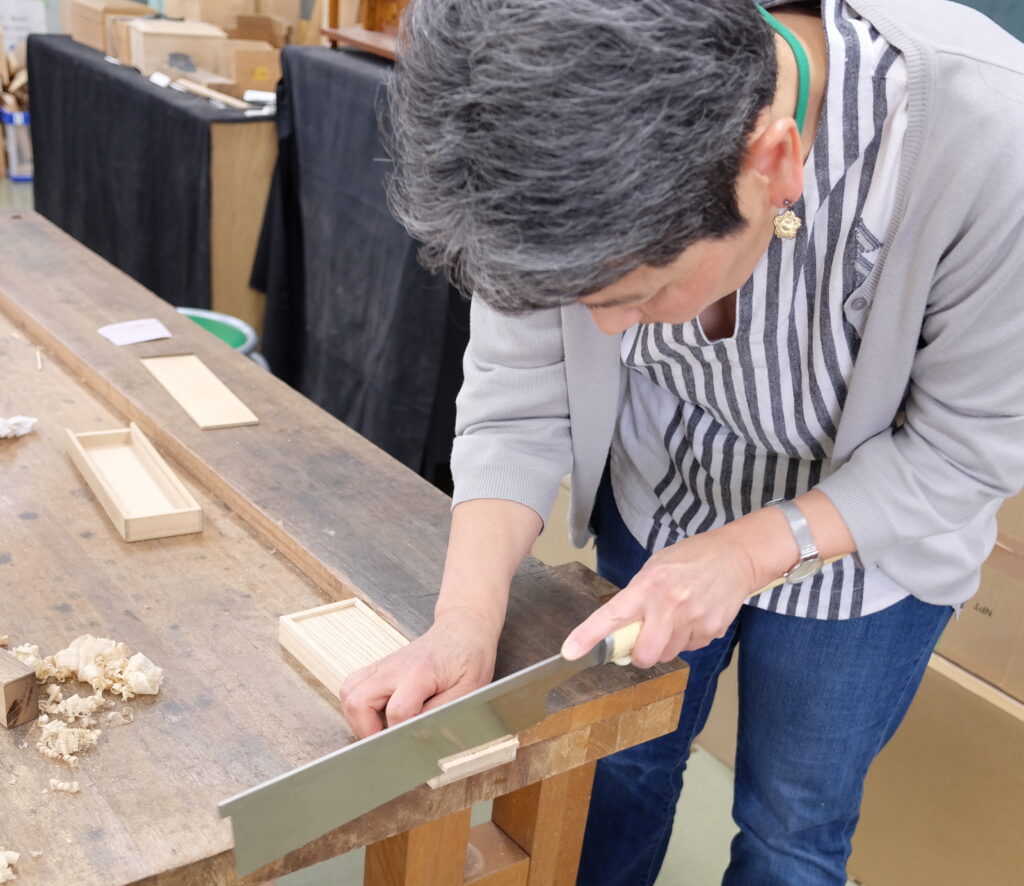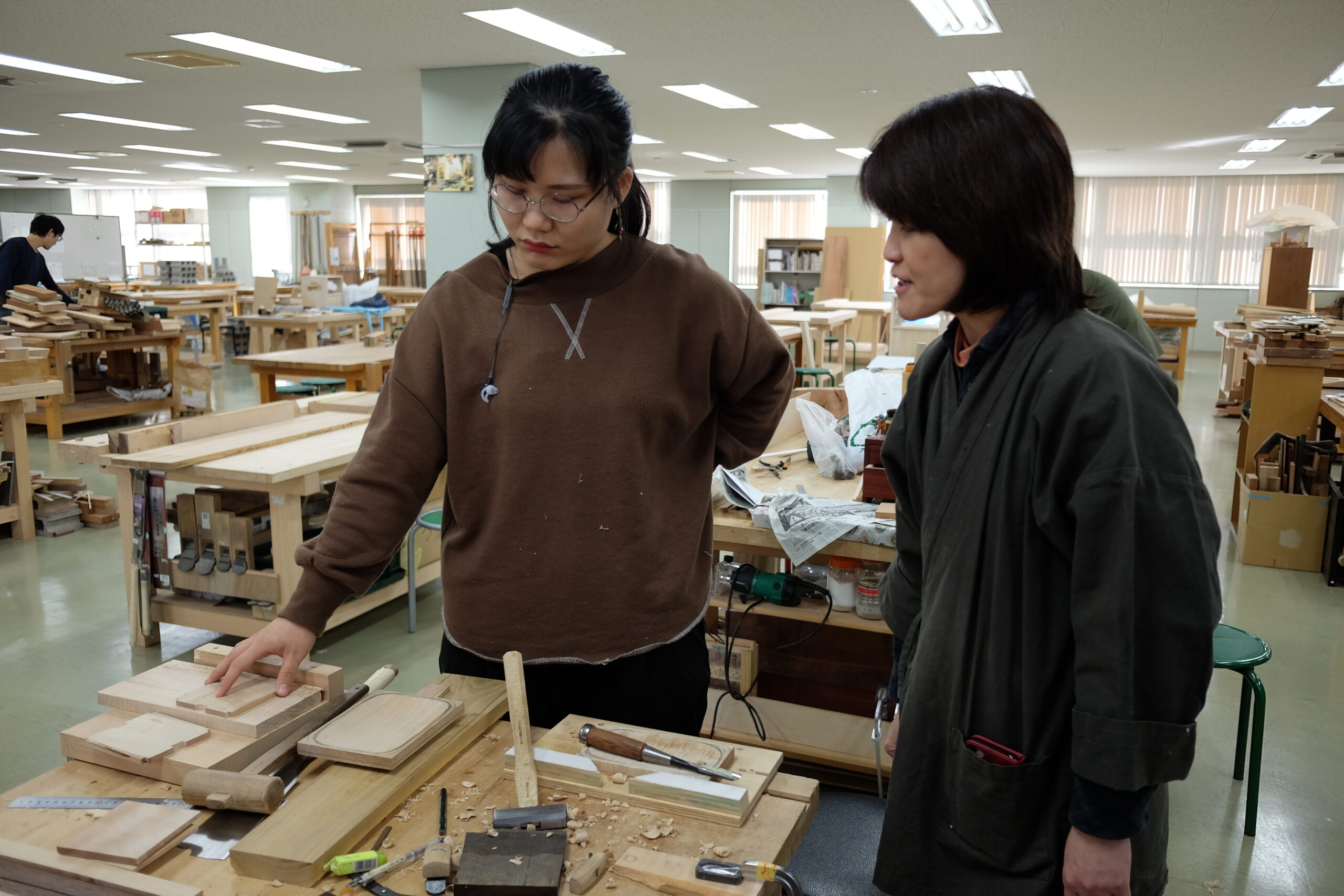My visit to the campus percolated an idea
Photo by Author Akemi Sagawa
The “Open Campus” program offered by TASK (Traditional Arts Super College of Kyoto) gave me another surprising opportunity in addition to making my own wooden pencil case.
…
After a short presentation and a video introducing TASK, an instructor lead me and a teenage boy from the auditorium to the woodwork studio.

Photo by Author Akemi Sagawa
On the wooden table, two sets of small pieces of wood and tools were laid out. A chisel, a saw, a plane, glue, and sandpaper… When was the last time I touched these tools, or have I ever used a chisel or plane? The instructor was patient enough not to lose her cool until both of us completed the whole process. I planed the lid too much so that it was a little loose. Well, at least it looked decently rectangular of a pencil case. I think I understand why I didn’t become a master craftsperson.
It was Sunday, but several students were at the studio working on their own projects. According to the instructor, it was not uncommon to see students on weekends. I asked one of them if she enjoyed studying here. Her response of a powerful “yes!”
…
This campus visit convinced me to make a proposal to the school, that Five Senses Foundation, the non-profit organization I run, would sponsor two students to spend a week in Seattle.
Why?
The students at TASK reminded me of myself a long time ago when I was in high school.
I spent one year in a small city in Pennsylvania as an exchange student. It was in the late seventies. There was no Internet, but we had TVs. I thought I knew the US pretty well, until I arrived.
The houses and the cars looked enormous. The ceiling of the living room was so high, and I had never seen such huge walls in a house. The dining table looked larger than the entire kitchen of my house in Japan. In the US, everything was huge!
There were and still are so many differences in lifestyle between the two countries. Seeing is believing. No TV program nor the book is sufficient. Firsthand experience is vital.
The domestic demand for Japanese traditional arts and crafts is dwindling. The industry must create demand outside Japan. The US remains the dominant economy, and it makes sense to market there. The first step is to understand the customers. I wanted the students at TASK to experience the US firsthand, as I did years ago.

One thought on “How Future Traditional Craftspeople Are Trained at TASK”
Comments are closed.